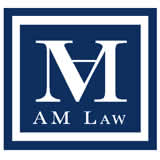Creditors are any collection agency, a credit card company, a lender, or a mortgage company that is seeking a debt repayment. When a creditor has abided by the Fair Debt Collection Practices Act, they can acquire the right to sue you for your property or for the repayment of the debt. If they are successful and obtain a judgement, a creditor can foreclose on your home, repossess your property, andeven garnish your wages. Bankruptcy is often a solution to creditor problems.
When you file your bankruptcy case with the United States Bankruptcy Court, an automatic stay takes immediate effect. Your creditors will be notified of your bankruptcy case filing and the automatic stay will stop creditors from contacting you or taking any legal action against you.
Within 30 to 45 days after filing your bankruptcy case, filers must attend a First Meeting of Creditors also known as the Section 341 Meeting which is scheduled by the Clerk of the United States Bankruptcy Court. All scheduled creditors receive notice in the mail of your First Meeting of Creditors and may attend. The First Meeting of Creditors is conducted under oath by the Bankruptcy Trustee or the UnitedStates Trustee assigned to your case.
